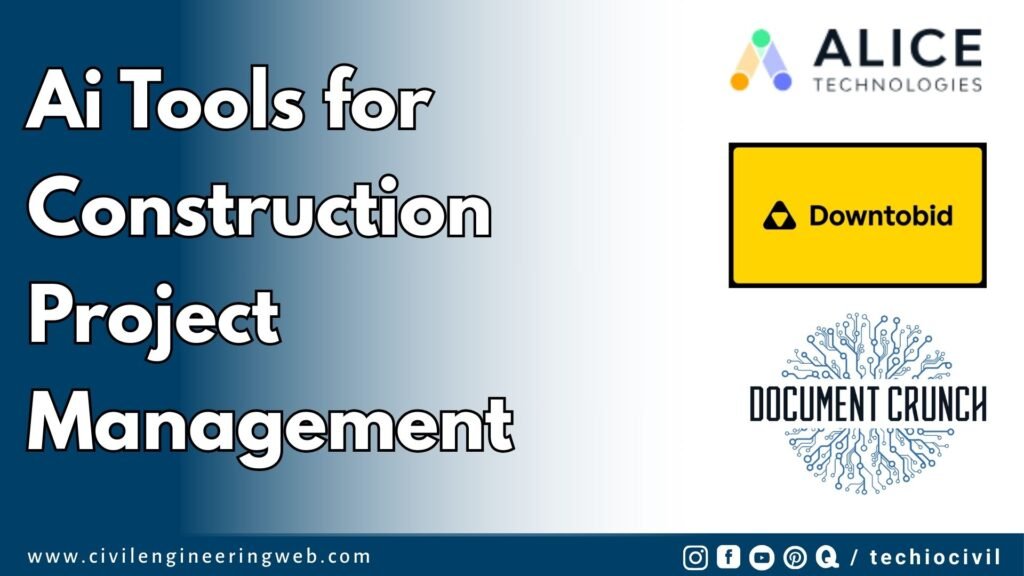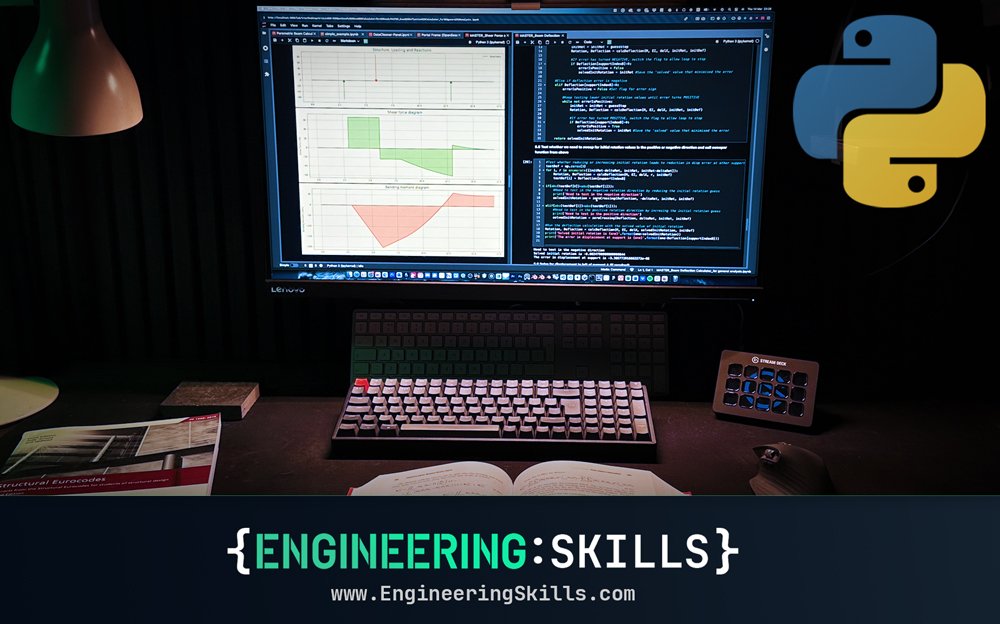In today’s fast-changing world, civil engineers cannot depend only on traditional skills. The construction industry is growing with the help of AI, automation, data, and digital tools. To stay relevant, secure a good job, and grow in your career, you must learn technical skills that are future-proof.
In this article, let’s explore the most important technical skills civil engineers must learn, how these skills help in getting jobs, and why they are relevant in the age of AI and digital transformation.
Table of Contents
✅ Core Civil Engineering Skills
Before learning advanced tools, every civil engineer must master the core subjects. These are the fundamental skills that form the base of your knowledge.

💡 Examples of Core Skills:
- Structural Design (e.g., designing beams, columns, slabs)
- Soil Mechanics and Foundation Engineering
- Transportation Engineering (e.g., road design, traffic study)
- Water Resource Engineering (e.g., stormwater drainage)
- Construction Materials and Testing
🔸 Example: If you are designing a G+5 RCC building, you must know how load transfers from slabs to foundation, or how to design a footing safely. Software will help, but the logic must come from you.
🖥️ Software & Digital Skills
Software knowledge is essential in most jobs today. Whether you work in design, construction, planning, or infrastructure, knowing the right software can help you stand out.
1. Structural Design Software
Learn software that helps you design safe and optimized structures.
- ETABS – For multi-storey building design
- STAAD Pro – For industrial, steel, and complex structures
- SAFE & RCDC – For foundation, slab, and detailing work

Also Read: 5 Best Structural Design and Analysis Software
💡 Fact: Over 70% of structural design firms in India and the Gulf countries use ETABS or STAAD Pro for regular building projects.
2. BIM (Building Information Modeling)
BIM is the future of the construction industry. It connects architecture, structure, and services in one digital model.

Also Read: 7 Best 3D Modeling & Architecture Design Software
- Tools: Revit, Navisworks, Civil 3D, BIM 360
- Learn: 3D modeling, clash detection, quantity estimation, and 4D planning
💡 Example: In the Dubai Expo projects, BIM was used to detect clashes between ducts, beams, and pipes, which saved over $20 million in rework cost.
3. Project Management Tools
Companies want engineers who can plan and manage projects smartly.

Also Read: 20+ Ai Tools for Construction Project Management
- Tools: Primavera P6, MS Project, Asta Powerproject
- Learn: Project planning, resource scheduling, earned value management
💡 Tip: With project planning skills, you can work as a Planning Engineer – a high-demand role in infrastructure and EPC firms.
4. Geotechnical & Foundation Analysis Software
Useful for deep foundation, pile design, or slope stability analysis.
- Tools: PLAXIS, GEO5, Settle3D
5. GIS (Geographic Information Systems)
GIS is used for mapping, analysis, and planning in smart cities, roads, water systems, etc.
- Tools: ArcGIS, QGIS
- Learn: Land mapping, flood analysis, terrain modeling
💡 Example: Many urban planning jobs require GIS skills to map traffic flow or flood zones.
🤖 Data, AI & Coding Skills
1. Python Programming for Civil Engineers
Python helps automate calculations and run smart analysis.

- Learn to write scripts for load calculation, cost estimation, or report generation.
- Create optimization models (e.g., minimum beam depth for max strength)
💡 Example: Python can automate Excel-based structural design checks for hundreds of members in seconds.
2. Data Analytics & Visualization
Every construction project generates data – material usage, delays, costs.
- Tools: Excel (advanced), Power BI, Tableau
- Learn to create dashboards, analyze patterns, and present clear reports
💡 Example: You can use Power BI to show delayed vs planned activities, helping managers take fast decisions.
🏗️ Smart Construction & New Age Tech
1. Drones and Photogrammetry
Drones are used to survey land, check progress, and inspect structures.

- Tools: Pix4D, DroneDeploy, DJI Terra
- Learn: How to create 3D maps, measure earthwork, and generate site reports
💡 Fact: Using drones in road projects reduced survey time by 80% in Maharashtra’s highway projects.
2. IoT and Digital Twin Technology
IoT sensors are used to monitor buildings, bridges, dams in real time.
- You can connect sensors to monitor cracks, vibrations, water levels.
- Digital Twins create a live model of a structure using sensor data.
💡 Example: In London, bridges are connected with IoT sensors to track real-time stress and load.
🌱 Sustainability and Green Building Skills
1. Green Building Certification
With global warming, demand is rising for energy-efficient buildings.
- Learn certifications: LEED, IGBC, GRIHA
- Tools: DesignBuilder, eQuest, EnergyPlus
💡 Example: LEED-certified engineers are paid 20–30% more in many international job markets.
📌 How to Get Started?
Here is a step-by-step path to begin learning future-ready skills:
- Pick 1 Design Software: Start with ETABS or STAAD Pro
- Add 1 Digital Skill: Choose Python or Power BI
- Learn 1 Project/BIM Tool: Revit or Primavera
- Build Your Portfolio: Share your work on LinkedIn, GitHub, or a blog
- Get Certified: Take online courses with certificates (Coursera, Udemy, NPTEL)
💪 Don’t wait for the future — build your skills today to shape the future of construction.
Also Read:
- 5 Best Ai Tools for Quantity Surveying | BOQ Ai tools
- 20+ Ai Tools for Construction Project Management
- 7 Chat GPT Ai Tools for Structural Engineers
- 7 Top Ai Tools for Structural Analysis and Design
- 5 Best Ai Tools for Architect and Designers

I am a Professional Civil & Structural Engineer having more than 4 years of experience in Engineering, Procurement and Construction industry. Here i sharing the latest updates of EPC Projects and Construction News.
